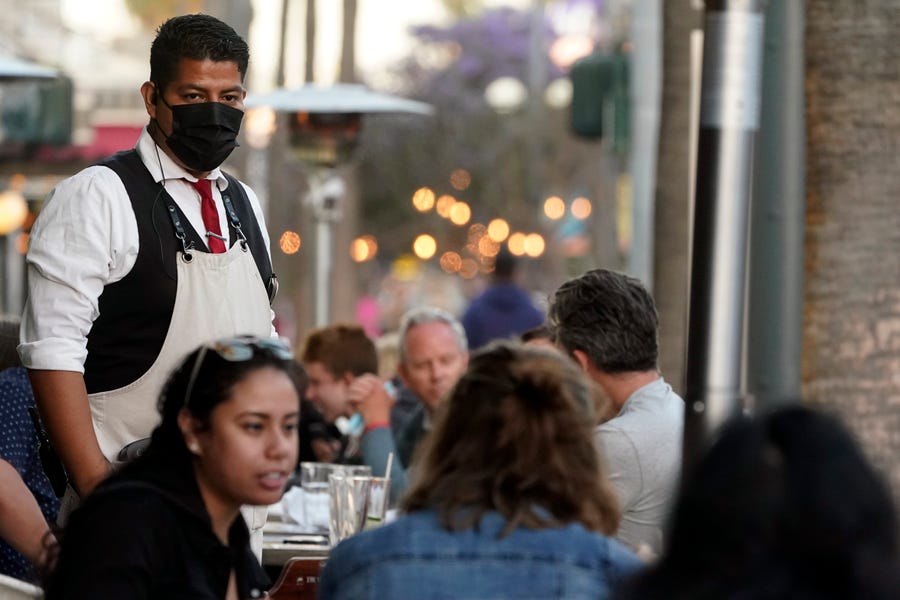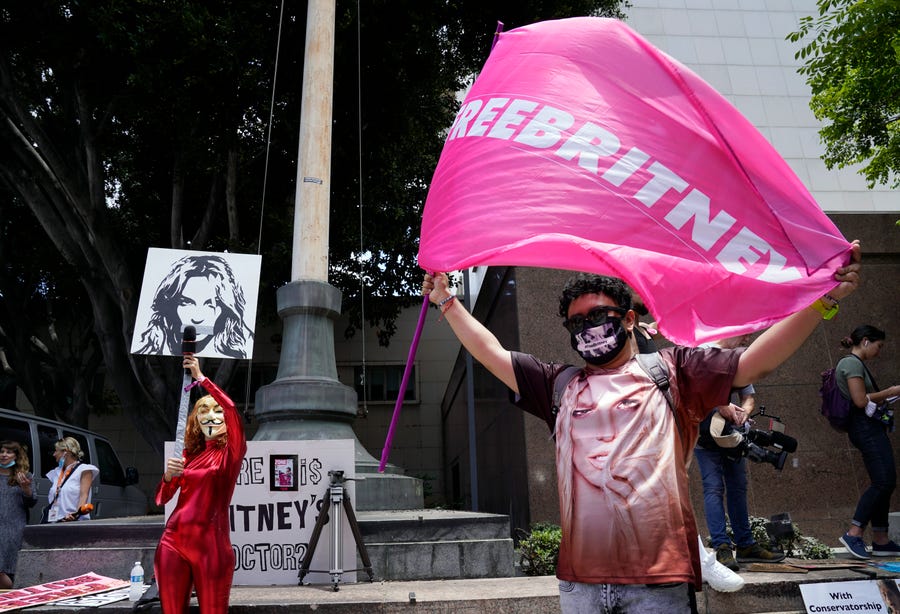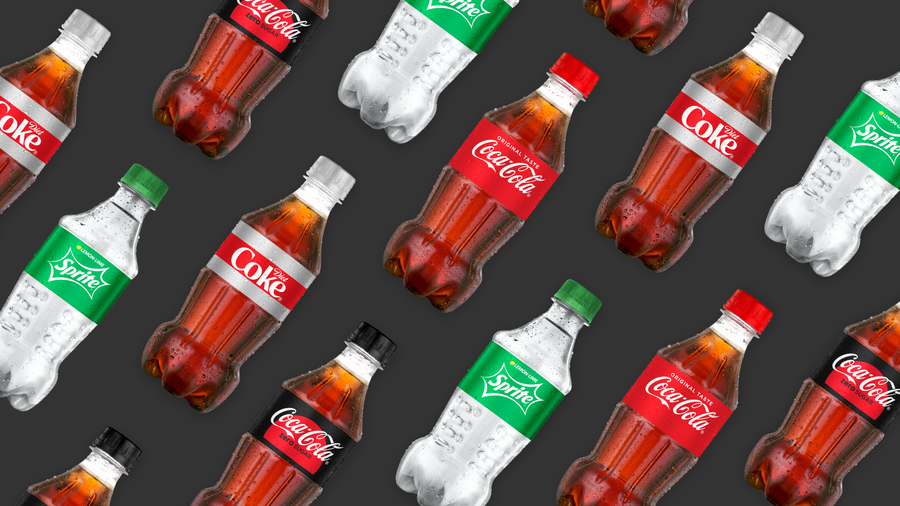 |
In California | A SPOTLIGHT ON ALL THINGS GOLDEN STATE | Friday, June 25 | | |
| |
| |
| |
| |
| I'm Winston Gieseke, philanthropy and special sections editor for The Desert Sun in Palm Springs, bringing you the final In California newsletter — at least for now. We at the USA Today network are so very grateful for your support and hope to continue providing you with the best possible local news coverage, starting with these Golden State headlines. |
California to extend eviction ban, pay back rent for eligible tenants under new deal |
| The Golden State will ban evictions for unpaid rent through the end of September and pay off all back rent for eligible tenants under a deal announced Friday by Gov. Gavin Newsom and legislative leaders. |
| California banned evictions after Newsom imposed the nation's first statewide shutdown in March 2020 and ordered most businesses to close and people to stay home to slow the spread of the coronavirus. |
| Those protections were scheduled to expire Wednesday. The new agreement will extend the eviction moratorium through Sept. 30. |
| To be eligible for $5.2 billion provided by the federal government to California for the effort, tenants must pay at least 25% of what they owe by Sept. 30, sign a declaration that they have had economic hardship because of COVID-19 and must earn 80% or less of the area median income. |
| "Our housing situation in California was a crisis before COVID, and the pandemic has only made it worse — this extension is key to making sure that more people don't lose the safety net helping them keep their home," said Senate President Pro Tempore Toni Atkins, a Democrat from San Diego. |
More infectious COVID-19 mutation discovered in Tulare County |
 | | A doctor taking care of a COVID-19 patient. | | Getty Images | |
| A highly infectious COVID-19 variant first sequenced in India has shown up in California — in Tulare County, to be specific. The case was identified through genomic sequencing conducted by the Tulare County Public Health Laboratory. |
| Public health officials are concerned the more infectious Delta variant could spread quickly in the unvaccinated population, giving it more opportunities to mutate into an even more dangerous variant. |
| Currently, 33% of people living in Tulare County are fully vaccinated, one of the lowest vaccination rates in the state. |
| "We need to continue the important safety measures to slow the spread of COVID-19, and it is especially important for unvaccinated individuals to wear a face-covering or mask while in any public indoor setting," Tulare County Public Health Officer Dr. Karen Haught said. |
| California's Department of Public Health reports fewer than 350 cases of the emerging strain have been sequenced in the state, but the variant is gaining a foothold in the United States. |
| The CDC released data this week showing that the prevalence of the Delta strain more than doubled over the two weeks that ended June 19 to 20.6% of positive COVID-19 test samples genetically sequenced, compared with 9.9% in the week that ended June 5. |
Can employers ask about your vaccination status? |
 | | In this June 9, 2021, file photo, a server tends to customers in an outdoor dining area amid the COVID-19 pandemic on The Promenade, in Santa Monica, Calif. California regulators on Thursday approved revised worksite pandemic rules that allow fully vaccinated employees the same freedoms as when they are off the job. | | Marcio Jose Sanchez, AP | |
| As more and more companies request that employees return to the office, some want to know about their workers' vaccination status. |
| Manhattan-based Morgan Stanley, for example, told employees they need to be vaccinated against COVID-19 before returning to work. Goldman Sachs is also requiring U.S. employees to disclose whether or not they've been vaccinated — but isn't mandating that workers get inoculated. |
| But is that legal? |
| For the most part, as reported by The Mercury News, employers can mandate that employees be vaccinated. But federal laws may require companies to provide exemptions or reasonable accommodations to workers who aren't vaccinated due to a disability or religious belief. |
| According to the Equal Employment Opportunity Commission, the federal agency that enforces employment non-discrimination laws, inquiring about vaccine status or requesting documentation is not in violation of federal equal employment opportunity laws. |
| However, all documentation collected by an employer keeps regarding vaccination status must remain confidential. And inquiring about a person's reason for not getting vaccinated could reveal medical, disability or religious information that is protected under federal laws. |
Elsewhere in California, songstress Britney Spears says her conservatorship won't let her remove her IUD. Is that even legal? |
 | | Britney Spears supporters Gabriela Ruiz, left, and Carlos Morales demonstrate outside a court hearing concerning the pop singer's conservatorship at the Stanley Mosk Courthouse. | | Chris Pizzello, AP | |
| Britney update: At the end of a passionate speech before the court, the singer dropped a bombshell, that her "so-called team" refused to let her remove the intrauterine contraceptive device inside her, which prevented the star from having more children. |
| "I wanted to take the IUD out, so I could start trying to have another baby," the artist told the court, "but ... they don't want me to have ... any more children. So basically, this conservatorship is doing me way more harm than good. I deserve to have a life." |
| Jodi Hicks, president and CEO of Planned Parenthood Affiliates of California, called the pop icon's account of forced contraception "extremely troubling," as reported by the Los Angeles Times. |
Bay Area group sues Coca-Cola over plastic pollution 'greenwashing' |
 | | Coca-Cola's 13.2oz bottle made from recycled material. | | Coca-Cola | |
| An environmental group based in the Bay Area has filed a suit against Coca-Cola for false advertising, accusing the beverage corporation of "greenwashing" its image while generating more plastic pollution than any other company in the world. |
| The Berkeley-based Earth Island Institute has filed a lawsuit against Coca-Cola, arguing that the corporation cannot lawfully label itself as a sustainable or environmentally friendly company while generating millions of tons of plastic waste every year. |
| The complaint says the company is deceiving consumers by using the word "sustainable" in its marketing and making unrealistic claims about recycling. |
| "Coca-Cola will never be a truly sustainable company unless it moves away from its reliance on single-use plastic entirely, which it has no plans to do," according to the lawsuit. |
| Coca-Cola spokesperson Ann Moore declined to comment on the lawsuit, but said via email that the company recognized its "responsibility to help solve the global plastic waste crisis." The company, she said, has committed to collecting "a bottle or can for every one we produce and recycle it" by 2030. |
| In California is a roundup of news from across USA Today network newsrooms. Also contributing: Los Angeles Times, The Mercury News. We appreciate your support of the this newsletter and hope you will subscribe to your local newspaper to keep local journalism thriving. |
| As the philanthropy and special sections editor at The Desert Sun, Winston Gieseke writes about nonprofits, fundraising and people who give back in the Coachella Valley. Reach him at winston.gieseke@desertsun.com. |
| |
| |
| |
| |